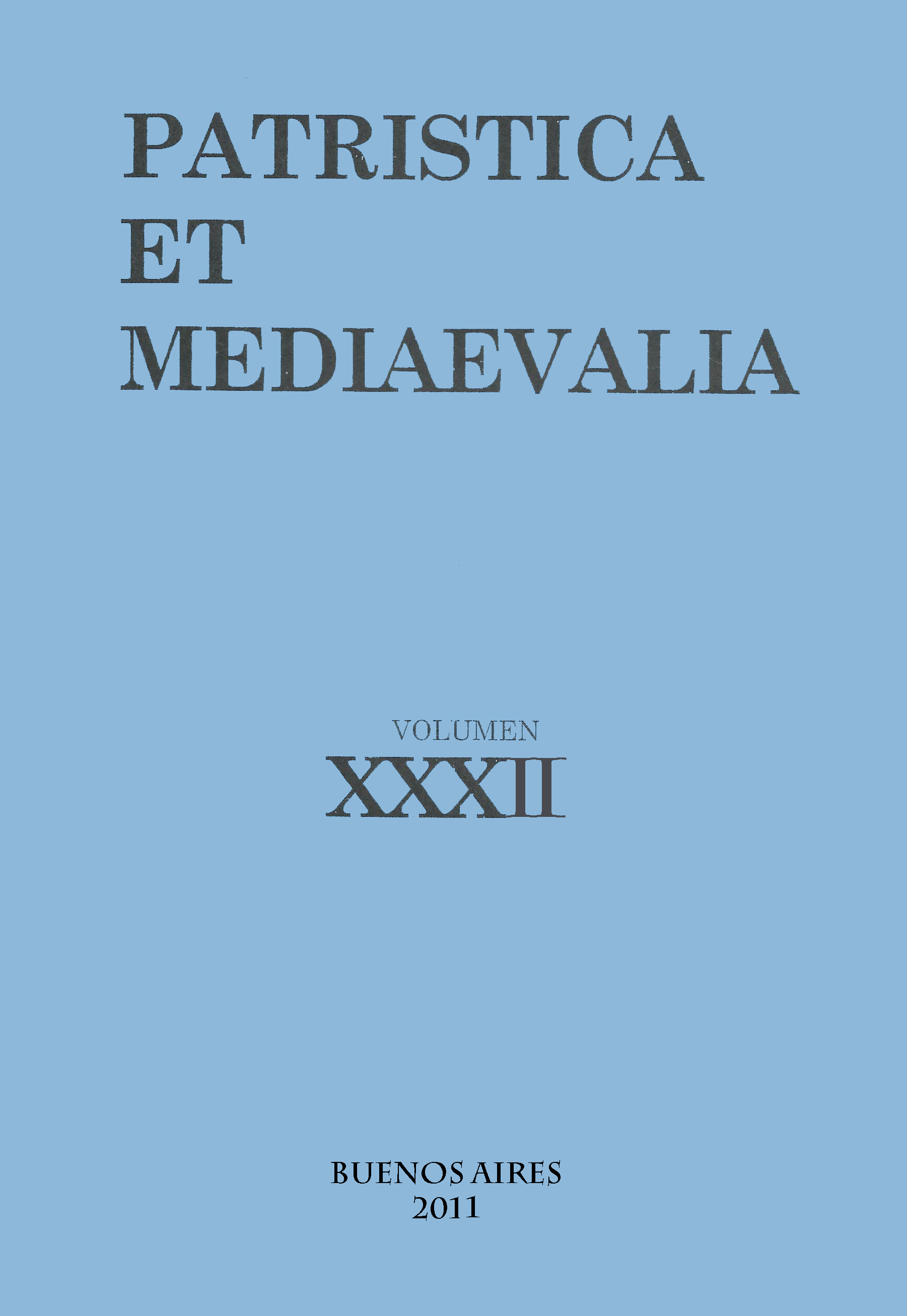The Word as Symbolic Paradigm in the Thought of Nicholas of Cues (1401-1464)
Abstract
This paper intends to show the role played by the Word in the thinking of Nicholas of Cusa through the analysis and hermeneutics of his sermons and other works previous to 1450. To do so, the article presents, in first place, his doctrine of the eternal generation of the Verbum, by which the Divine is conceived as a dynamic and productive principle as the ultimate foundation of all word. Secondly, it presents the human mind, image of the divine one, as the dynamic force that sets up the symbolic or conjectural universe in which the word is inscribed. Finally, it shows that the word fulfils the function of revealing and manifesting the human mind, allowing the mind’s self-knowledge and the knowledge of the Verbum.Downloads
References
André, J. M. (1997). Sentido, Simbolismo e Interpretação no discurso filosófico de Nicolau de Cusa. Coimbra: Fundação Calouste Gulbenkian. Junta Nacional de Investigação Científica e Tecnológica.
André, J. M. (2006). Nicolau de Cusa e a força da palabra. Revista Filosófica de Coimbra, 29, 3-38.
D’Amico, C. (2005). Ignorancia y conjetura en la propuesta de concordia de Nicolás de Cusa. Machetta, J. M. & D’Amico, C. (eds.). El problema del conocimiento en Nicolás de Cusa: genealogía y proyección. Buenos Aires: Biblos, 267-279.
Duclow, D. (1977). The Analogy of the Word: Nicholas of Cusa’s Theory of Language. Bijdragen, 38, 282-299.
Elpert, J. B. (2002). Loqui est revelare - verbum ostensio mentis. Die sprachphilosophischen Jagdzüge des Nikolaus Cusanus. Frankfurt am Main: Peter Lang.
Gadamer, H-G. (1960). Wahrheit und Methode: Grundzüge einer philosophischen Hermeneutik. Tübingen: J.C.B. Mohr (Paul Siebeck).
Haubst, R. (1968). Die besonderen Editionsprobleme bei den zwei ersten Cusanuspredigten. In Haubst, R. (Hrsg.) Mitteilungen und Forschungsbeiträge der Cusanus-Gesellschaft 6. Mainz: Matthías-Grünewald-Verlag, Mainz, 65-75.
Senger, H. G. (1971). Die Philosophie des Nikolaus von Kues vor dem Jahre 1440. Untersuchungen zur Entwicklung einer Philosophie in der Frühzeit des Nikolaus (1430-1440). Münster: Aschendorff.
Vansteenberghe, E. (1920). Le cardinal Nicolas de Cues (1401-1464). L’action - la pensée. Lille/París: Imprimerie Lefebvre - Ducrocq.
Van Velthoven, T. (1977). Gotteschau und menschliche Kreativität. Studien zur Erkenntnislehre des Nikolaus von Kues. Leiden: Brill.
1. The authors who publish in this magazine accept the following conditions:
-
They retain the copyright and grant to the magazine the right of the first publication, with the work registered under the Attribution-ShareAlike 4.0 International License that allows third parties to use what is published as long as they mention the authorship of the work and the first publication in this magazine.
-
They can make other independent and additional contractual agreements for the non-exclusive distribution of the version of the article published in this magazine (eg. include it in an institutional repository or publish it in a book) provided that they clearly indicate that the work was first published in this journal.
-
They are allowed and recommended to publish their work on the Internet (for example on institutional or personal pages).
2. AutoArchive Conditions. Authors are allowed and encouraged to distribute post-print electronic versions of their manuscripts because it promotes their circulation, a possible increase of quotation and a major reach among the Academic community. Color RoMEO: blue.













